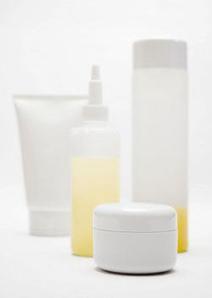
Personal care products have become a $50-billion industry in the United States. You are seduced on a daily basis by the intoxicating aromas, flashy packaging, and enticing promises of everlasting youth these products offer.
But what is the real cost of applying these products to your body?
If I were to tell you that your personal care products could be putting you at risk for hair and skin damage, immunological problems, damage to your eyes, and possibly even cancer, would you pay a little more attention to their ingredients?
A number of studies report SLS being damaging to oral mucosa and skin. This is not at all surprising since SLS is actually used as a skin irritant during studies where medical treatments for skin irritation require an intentionally irritating agent.
•A study at the Stern College for Women at Yeshiva University in New York in 1997 examined SLS in mouthwash. They found that SLS in mouth rinses caused desquamation of oral epithelium and a burning sensation in human volunteers.
•A study appearing in Exogenous Dermatology confirmed SLS to be a very "corrosive irritant" to the skin—irritation which persisted in research subjects for 3 weeks. SLS exerts its damage by stripping your skin of protective oils and moisture.
•SLS is associated with increased aphthous ulcers (canker sores) due to the denaturing effect and irritation of the oral mucosa.
Swallowing SLS will likely lead to nausea and diarrhea and is even used as a laxative in enemas. So be careful not to swallow much of your toothpaste if it contains SLS.
According to Judi Vance, author of Beauty to Die For, SLS can cause cellular DNA damage. In an article for ConsumerHealth.org,13 she states that a dental association in Japan tested the effects of SLS on bacteria, finding it to be mutagenic. She also states that hair follicles are significant transporters of harmful chemicals into your body.
From: articles.mercola.com


